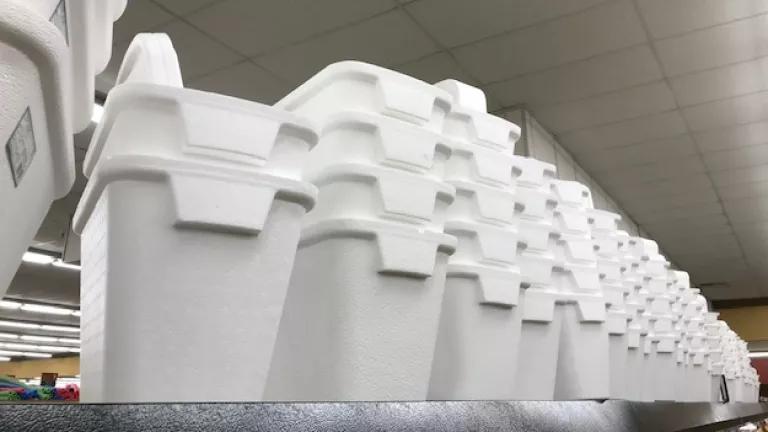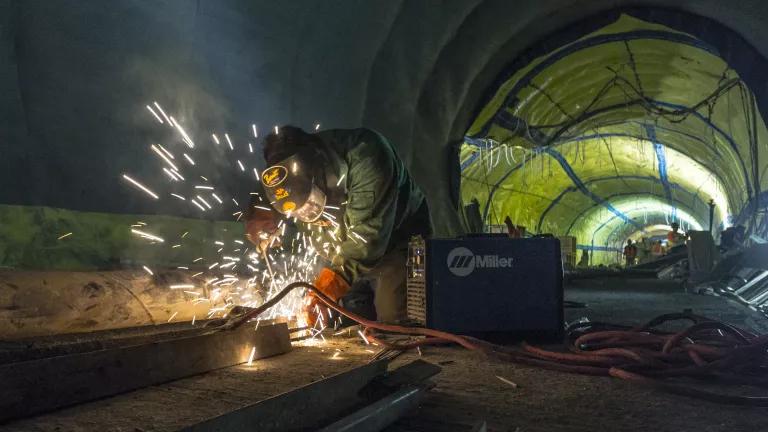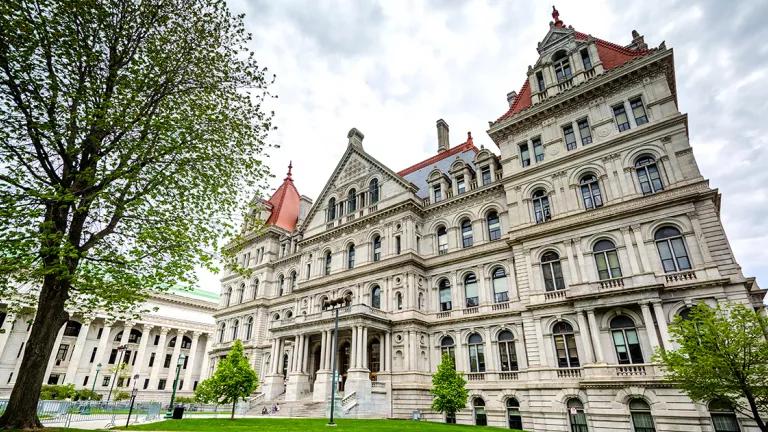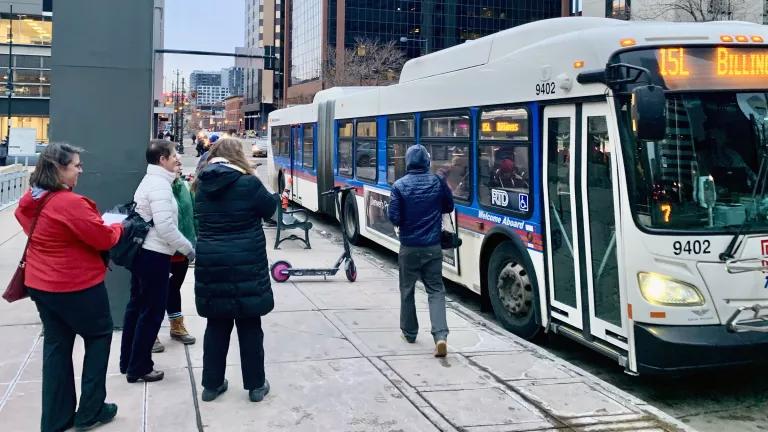New York State Legislature Strikes A Blow Against Plastic Pollution
Going, going, almost gone! Just-passed New York State legislation would prohibit the sale and distribution of fossil fuel–based, water-polluting polystyrene foam ice chests.

Polystyrene foam coolers would be banned under forward-looking legislation passed by the New York State Senate and Assembly.
Eric A. Goldstein/NRDC
Say goodbye to fossil fuel–based, water-polluting polystyrene foam beverage coolers in the Empire State.
The New York State Senate and Assembly have just passed identical bills (S4414A/A4943A) that would ban the sale and distribution of the ubiquitous white foam cold-storage coolers, except for those used for medical purposes, beginning January 1, 2026.
These polystyrene coolers, or ice chests, have been a particularly nettlesome source of pollution because they are frequently brought to beaches, parks, and other recreation areas, used once, and then discarded—often ending up as trash in waterways and throughout the environment. The brittle nature of polystyrene foam means that these coolers easily break into small pieces, making litter cleanup next to impossible.
The legislation, which has been championed by State Senator Liz Krueger and Assemblymember Harvey Epstein, is another sensible action designed to curb the ever-growing amount of single-use plastic products that have been clogging landfills, producing contaminants in incinerators, or littering parklands, beaches, and waterways. (Over the last several years, the state legislature has enacted legislation banning plastic carryout shopping bags, individual plastic toiletry bottles for hotel guests, polystyrene foam packing peanuts, and polystyrene foam food and beverage containers.)
As a final step, the new legislation must be sent to Governor Kathy Hochul for her review. We expect that she will sign the bill into law before the year’s end. And for good reason.

Environmental Champions: New York State Senator Liz Krueger and Assemblymember Harvey Epstein spearheaded the passage of legislation that prohibits environmentally problematic polystyrene coolers.
New York State Senator Liz Krueger and Assemblymember Harvey Epstein
The production of plastics from fossil fuels generates pollution and emissions of global warming gases at every step, from extraction and manufacture to transportation and ultimate disposal.
Scientists now recognize that the widespread dispersal of plastic throughout the environment is not only harming wildlife and ecosystems but also threatening public health.
The National Institutes of Health has included styrene—a major component of polystyrene foam—on its list of anticipated human carcinogens.
A recently released public opinion poll, commissioned by NRDC, demonstrates broad support for actions like the prohibition on polystyrene foam coolers. Eighty-eight percent of respondents supported reducing plastic production by eliminating unnecessary and avoidable plastic; more than 90 percent backed eliminating toxic chemicals in plastic products; and roughly the same percentage wanted to encourage alternatives to single-use plastics.
The Krueger/Epstein legislation phasing out polystyrene foam coolers is another step toward curbing the onslaught of throw-away plastics in New York, especially for products that have more environmentally friendly substitutes.
But in the state legislature, the big fish in terms of plastic pollution has yet to be caught.
The Packaging Reduction and Recycling Infrastructure Act (S4246B/A5322B), spearheaded by State Senator Pete Harckham and Assemblymember Deborah Glick, would reform solid waste handling throughout the state by incentivizing reductions in plastics and other packaging, removing toxic chemicals from packaging, and requiring manufacturers (rather than local taxpayers) to cover many of the costs of disposing of their packaging and other waste.
Here's hoping that State Senate Majority Leader Andrea Stewart-Cousins and Assembly Speaker Carl Heastie—fresh from celebrating passage of the polystyrene foam cooler bill—will soon schedule a vote on the Harckham/Glick packaging legislation and turn the 2023 legislative session into a historic one in the long-running battle to cut back on climate-destroying plastics.
This blog provides general information, not legal advice. If you need legal help, please consult a lawyer in your state.




